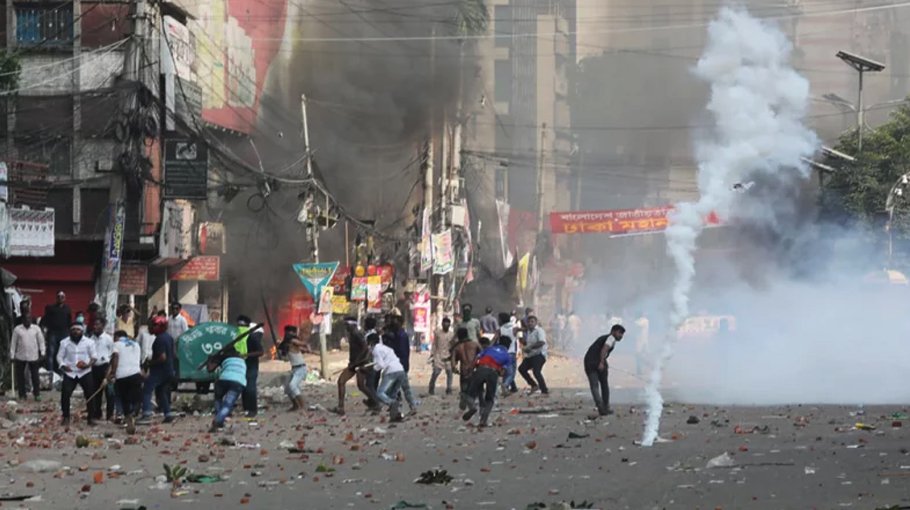Violence and misinformation: Barriers to economic prosperity

Violence and disinformation are anti-democratic, anti-competitive, anti-peace, and destabilizing- destabilizing both socially, economically, and politically.
Both violence and disinformation have been part of Bangladesh’s political process since independence. While disinformation has been only asserting its dominance in recent days, violence has always been a more dominant factor in Bangladesh politics.
But political violence entered a different and more deadly phase since the BNP -Jamaat coalition won the general election in October 2001. In the new phase, state-patronized violence by the top BNP-Jamaat leadership, ministers against the religious and ethnic minorities, and political opponents directly targeted minorities and political opponents to remove them from the political process. In the process, radical religious outfits such as Harkat-ul-Jihad and JMB were recruited to carry out the action plans. There were numerous instances of violence. But the most devastating incidences of violence aiming to disenfranchise minority voters and political opponents were: The October 2001 post-election political and sexual violence against Hindus, August 21, 2004, grenade attack at Awami League rally, killing 24 leaders and activists and injuring 500 hundreds, including the current prime minister of Bangladesh. 2005 bombing across the country.
The worst victims of the state-patronized violence were the Hindus of Bangladesh. The violence led to the exodus of around 300,000 Hindus during 2001-2006. The forced exodus of Hindus was anti-democratic and inhuman. The terrorists didn't spare the current Prime Minster of Bangladesh. She survived 19 attempts on her life.
Violence continued unabated and recurred during 2013-2016. This time, the target of the violence committed by BNP-Jamaat leadership and, activists and radical Islamists was the religious and ethnic minorities as well as against progressive bloggers.
Added to the predicament was the disinformation campaign funded by domestic and outside groups. For example, rumors spread by radical Islamists concerning the desecration of the holy Quran caused frequent violence against Hindus. Disinformation against secular and progressive bloggers, terming them anti-Islamic and atheists, cost the lives of more than 25 bloggers and forced hundreds of bloggers to seek refuge abroad.
During January-March of 2015, a massive petrol bombing campaign by the BNP-Jamaat supporters took the lives of more than 60 while injuring hundreds. A January 25, 2015, report by Amnesty International condemned the BNP-led campaign by saying, "…the manner in which the BNP-led protests are being carried out clearly shows a repeated pattern of violence being used for a political purpose."
We see a similar pattern of violence, burning public transportation, beating journalists, and beating law enforcement members to death, which has reappeared since the start of BNP-Jamaat's nationwide agitation programs on October 28, 2023.
It is important to note that the U.S. social media infrastructures have been used to spread anti-Hindu, anti-Western, and anti-secular disinformation by the members of the BNP-Jamaat coalition.
The United States seems to be pursuing the Biden administration's new value-based democratic approach to ensure a free election, which I believe is a wrong-headed strategy disregarding the anti-democratic violence and disinformation disenfranchising ethnic and religious minorities and progressive forces. Enforced elections didn’t bring peace and stability in Afghanistan and Iraq. Attempted regime change didn’t work in Bangladesh in 2007. The October 2001 free election victory by BNP-Jamaat led to a minority plight and exodus. As an American citizen, I don’t want to see China's influence, or a radical Islamist take over in Bangladesh.
A sustainable democratic process and a participatory and acceptable election are only viable when the agents of violence and disinformation are removed from the political process—otherwise, my earnest request to the U.S. policymakers not to make an Afghanistan-style spoil out of Bangladesh.
Dr. A B M. Nasir is a Professor of Economics, School of Business North Carolina Central University, USA



